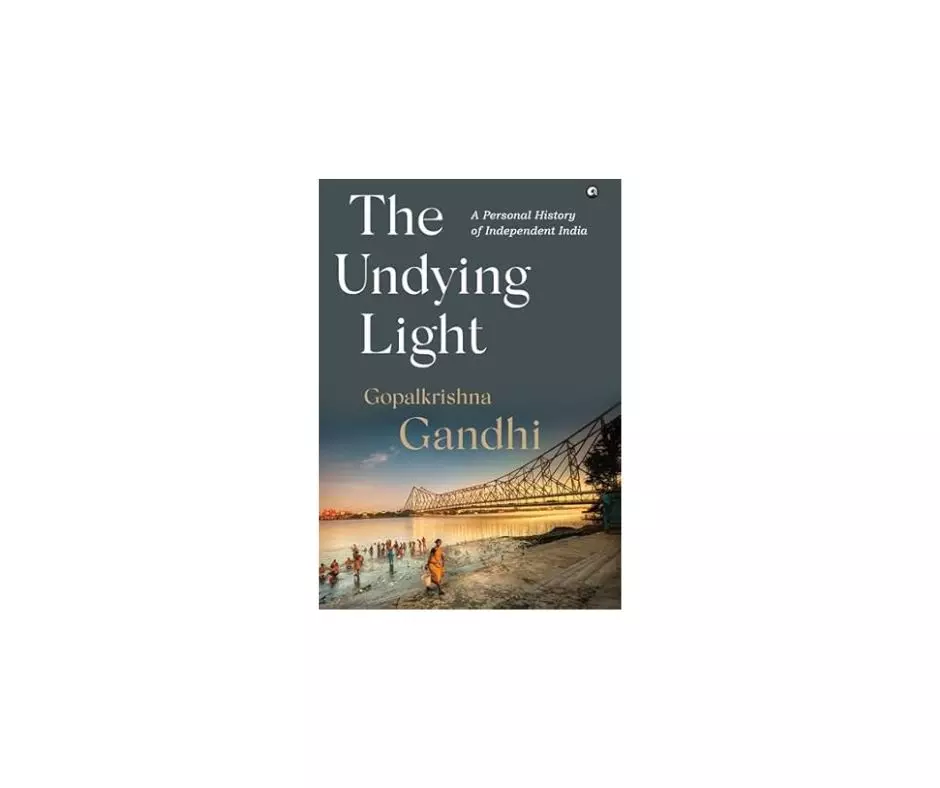Book Review | Rajaji Effect Strong in Memoir
Arguably the best part of the book — for those who seek to understand how things work on the inside — is its second half

This is a remarkable and remarkably well-written book in parts. It is composed in two registers — one that attempts a literary flavour — and the other a recall of select episodes by an educated individual familiar with the flow of life among the power elite.
It is a shade surprising that this individual is somewhat innocent of the dynamics of ideology — especially one that violently ended Gandhiji’s life and animates the present-day establishment as it seeks to pervade the totality of society and politics. The rise of that ideology and politics does not owe to the discontent arising from Indira Gandhi’s “populist” policies, as the author appears to suggest.
The grandson of Mahatma Gandhi and C. Rajagopalachari, the author is hardly an ordinary individual. He shows he has inherited certain values. But the influence is the greater from the maternal side. An overtly active Rajagopalachari, who when in his eighties founded the pro-big business and pro-princes Swatantra Party, is the larger-than-life figure in Gopal Gandhi’s universe. This may account for some of his political ideas. As for the other grandfather, the Mahatma remains a sentiment more than practical guide in the art of living.
Jayaprakash Narayan probably comes next as influencer on account of his simplicity, his intellectual stature and his wonderful English. But the author does not say much about JP’s political or ideological orientation other than aligning with his anti-Indira sentiments. Ambedkar is also hugely admired but the author or his family did not have much to do with that towering figure.
Interestingly, Gopal Gandhi declares himself to be a “Nehru sceptic”. With barbs he cavils at Jawaharlal Nehru for organising the Asian Relations Conference in early 1947, on the eve of Independence, although he is not slow to admire Nehru’s scholarship and some other qualities.
There is a wholly charming aspect to the writer. Without obfuscation he admits to being drawn to high office, especially of constitutional value, and to his inclination to seek elevated positions without having to run in an election. Achieving results minus the groveling has not been difficult for Gandhiji’s grandson, with friends across the system. And friends of all hues are spoken of only in superlative terms.
Some inconsequential errors were best caught in time — e.g., Jinnah went to Ziarat in Baluchistan to convalesce before he died, and not to Murree which is in the opposite direction; and President Ayub Khan was a Pathan, not a Punjabi.
Arguably the best part of the book — for those who seek to understand how things work on the inside — is its second half. In these pages the author takes the reader through life as a senior official in Rashtrapati Bhavan under two Presidents, as director of the Nehru Centre in London, as a state governor, and as India’s top diplomat in Colombo, Oslo and Pretoria, missing London by a whisker in spite of the right effort.
Without losing the integrity of the whole, this might have sufficed to make a first-rate memoir, not needing the opening part as scaffolding. Also, “A personal history of Independent India”, the sub-title, is less than self-effacing. Will it be less worthwhile for the chaiwallah next door to think up such a venture?
The Undying Light
By Gopalkrishna Gandhi
Aleph
pp. 604; Rs 999
